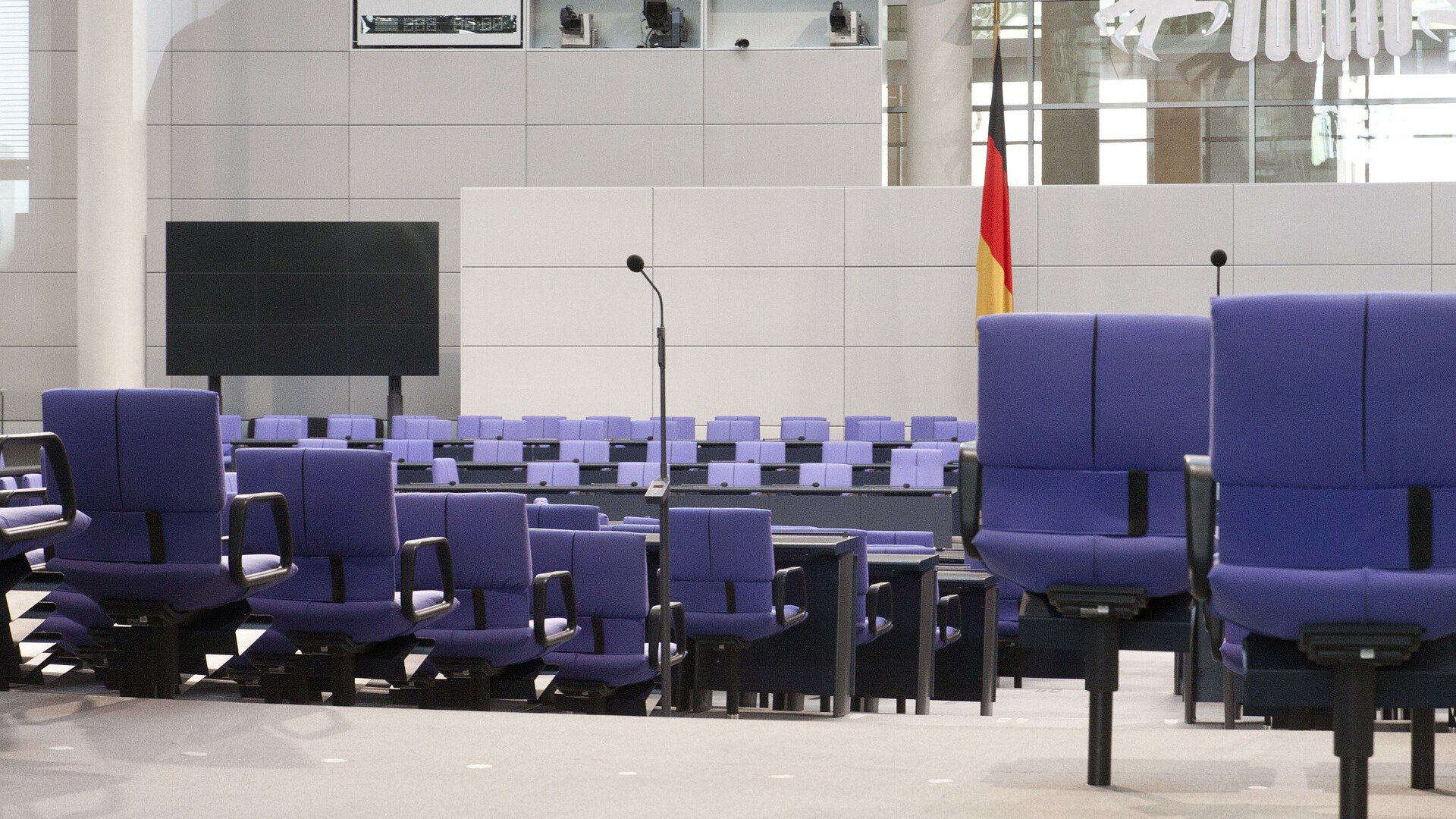Structural framework > State
A state based on the rule of law
The Federal Republic of Germany is a republican, democratic and social state governed by the rule of law (Articles 20 [3], 28 Basic Law), i.e., it is bound by the constitutional order and law and justice.
Core tenets:
- bound by basic rights and by justice and law (legal proviso)
- separation of powers between
- Legislative (legislature): Parliament
- Executive (executive power): Government/Administration
- Judiciary (dispensation of justice): Courts
- guarantee of full legal protection through independent judges in a fair trial
Notes

TobiasGolla / pixabay.com
The Federal Republic of Germany is a republican, democratic and social state governed by the rule of law (Article 28 [1] Basic Law [Grundgesetz/GG]). This constitutional principle is laid down in particular in Article 20 (3), which states that the legislature is bound by the constitutional order, the executive and the judiciary by law and justice.
It's core tenets include:
- All state bodies are bound directly by the basic rights laid down in the Basic Law: Article 1 (3): "The following basic rights shall bind the legislature, the executive and the judiciary as directly applicable law."
- All state authority is bound by justice and law (Article 20 [3]) and may only interfere with the rights of the people on the basis of law (legal proviso). Laws that interfere with basic rights must apply generally and not merely to a single case (Article 19 [1]). All state interventions in rights of the individual must satisfy the principle of proportionality, i.e., they must be suitable, necessary and reasonable, i.e., no milder, less burdensome means may exist in addition to the intervention taken (prohibition of excessive measures).
- State authority is subject to the separation of powers principle (Article 20 [2]), i.e., the (state and federal state) parliaments have the legislative powers, the government/public administration has the executive powers, and the courts have the judicial powers.
- In all cases of state intervention, the people are entitled to recourse to the courts (Article 19 [4]) through independent judges who are subject only to the law (Article 97 [1]). Moreover, every person is entitled to a hearing in a fair trial in accordance with the law people (Article 103 [1]) and the judge presiding over the trial must be determined prior to the hearing (Article 101 [1]).
Further reading
- Grundgesetz der Bundesrepublik Deutschland (last accessed: 31 July 2023).
![[Translate to Englisch:] [Translate to Englisch:]](/fileadmin/_processed_/e/b/csm_2021_09_28_Myles-Tan-WNAO036c6FM-unsplash_kleinIII_0ed92e37b3.jpg)

